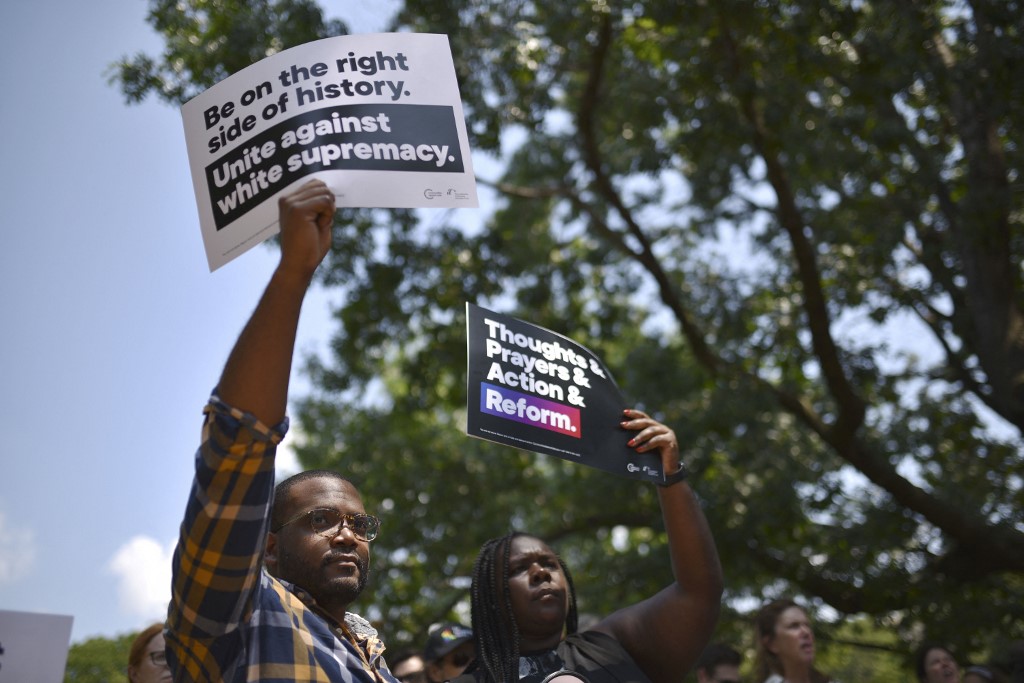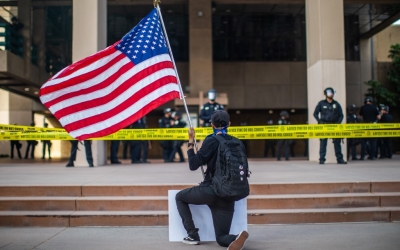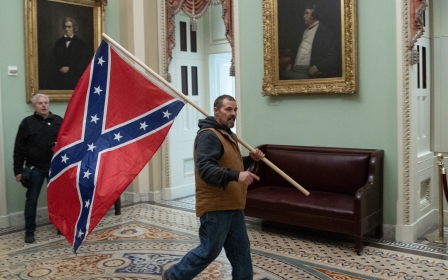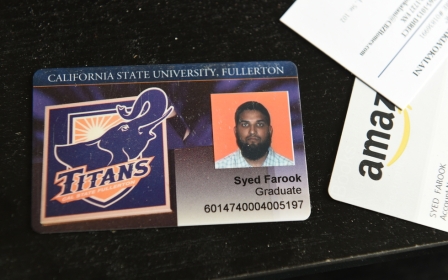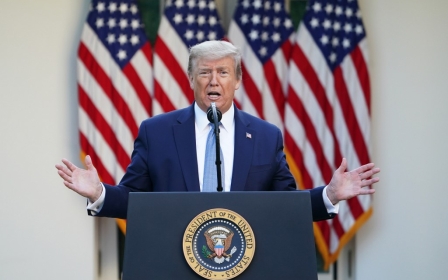How US domestic terrorism policy perpetuates Islamophobia
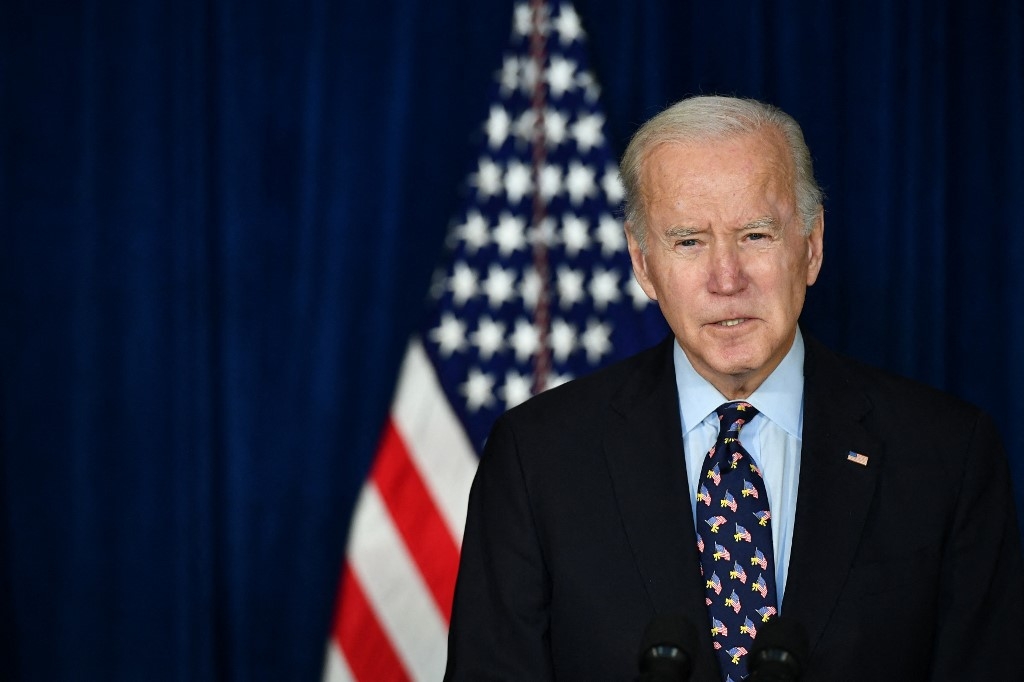
During his inaugural address last year, US President Joe Biden cited “a rise in political extremism, white supremacy, domestic terrorism that we must confront and we will defeat”. Speaking in the shadow of the Capitol Hill insurrection that had occurred just two weeks earlier, Biden added that “to restore the soul and to secure the future of America requires more than words”.
It was no surprise that he addressed this issue, as the aim of the Capitol rioters was to overthrow the results of the election and keep former President Donald Trump in office at all costs. But many wondered whether Biden would truly act, and what that response might look like. The US has no domestic terrorism statute - and existing tools to prosecute homegrown terrorism have rarely focused on the threat posed by white extremists.
Extremist violence can no longer be swept under the rug by diverting attention towards the threat of so-called Islamic terrorism
In June 2021, the Biden administration released its “National Strategy for Countering Domestic Terrorism”. This apparent prioritisation of the issue came as white supremacist violence was occupying a more central place in the public imagination and the political landscape, both due to the Capitol insurrection and violent clashes in cities across the country during the Trump administration.
A shift in media coverage was certainly part of the explanation, but this new policy focus was also rooted in a distinctly changing reality. As white nationalist rhetoric has gained steam in mainstream political discourse, extremist violence can no longer be swept under the rug by diverting attention towards the threat of so-called Islamic terrorism.
But the Biden administration’s agenda largely ignores the glaring reality that those criminalised by the existing legal structures for combating domestic terrorism have almost exclusively been Black, indigenous and people of colour, especially Muslims. Biden benefits from the perceived newness of both the threat of domestic extremism and efforts to combat it. This administration has centred the tumultuous political environment of the Trump years, and especially the rise of violence from his supporters in groups such as the Proud Boys.
New MEE newsletter: Jerusalem Dispatch
Sign up to get the latest insights and analysis on Israel-Palestine, alongside Turkey Unpacked and other MEE newsletters
Historical roots
It was during the Obama administration, however, that the US launched its Countering Violent Extremism (CVE) programme to facilitate domestic counterterrorism efforts. While the growing threat posed by white supremacist ideology was largely ignored - despite the fact that its growth has been credibly attributed to a backlash stemming from Obama’s election - CVE has been devastating for Muslim communities.
During the Obama administration, widespread surveillance of Muslim communities was authorised and normalised, as law enforcement agencies targeted Muslims who had neither committed a crime nor given any indication of planning to do so, on the basis of blatantly Islamophobic criteria such as religiosity or having a beard - presented as an indication that they were prone to extremism and violence.
In 2018, Trump cancelled the CVE programme, a move widely seen as a pre-emptive attempt to shield his base from potentially being targeted for white nationalism. Yet, given the programme’s history - alongside two decades of “war on terror” infrastructure that almost exclusively targets Muslims - this possibility still feels remote. It would certainly constitute a major break from US law enforcement history, in which Black and Muslim communities have been consistently targeted at far greater rates than whites.
The fact is, neither the threat posed by domestic terrorism, nor the specific menace of white supremacist violence, is remotely new. In his strategy document, Biden seemingly acknowledges this, stating: “This is the domestic terrorism threat America faces today - one with the distinctive imprint of today’s digital age as well as longstanding roots in domestic terrorism challenges throughout our country’s history. Tackling that threat comprehensively and persistently demands appreciating both its historical lineage and its distinctively modern form.”
Biden had an opportunity here to speak to the historical roots of white terrorism, going back to slavery and Jim Crow. Instead, he seemingly aimed to promote the perception that the historical threat has been replaced with something new and different. White supremacist violence is a threat that has been with us from the founding of the country, and in that sense, Biden was right to invoke history - but his committed attempts to link this particular threat to the Trump era, and his obscure language, point to an unwillingness to address the issue for what it is.
Targeting Muslims
Of course, Biden’s use of the word “history” could denote a deeper understanding of the shape of American violence. Still, history gives us no evidence that such a theoretical understanding has ever resulted in anything remotely consequential being done to address white supremacist violence. That’s why these efforts to curb domestic terrorism have rightly been critiqued for what the assumed consequence will be: further and continued targeting of BIPOC communities, and Muslims in particular, in the context of national security.
In large part, we can attribute this to the social construction of terrorism, nearly universally accepted in the years since the launch of the “war on terror”. Who gets investigated for suspected terrorism, who gets prosecuted, and who gets convicted are all inextricably linked to the social constructions that have primed us to feel we know who “does” terrorism; who is a terrorist.
For more than two decades, since the Bush administration invaded Afghanistan, we have been told repeatedly that “the terrorists” are Muslim - and this association has been fully absorbed into the domestic landscape. The national-security-obsessed paradigm that grew out of those early days has expanded to transform a wide variety of US institutions and policies, from immigration services, to surveillance, to the widespread use of informants to obtain federal terrorism prosecutions.
Simply put, there was an intentional effort post-9/11 to construct terrorism as a uniquely Muslim crime, meaning that efforts to designate white supremacist violence as terrorism have never really stuck.
A recent court verdict illustrates how far the reality of our approach to domestic terrorism is from the language of the Biden administration and others who insist that the threat of white supremacist violence can and should be countered under that label. Two men charged with plotting to kidnap Michigan Governor Gretchen Whitmer in 2020 were acquitted on all charges last month, while two other defendants saw the case end in a mistrial.
Their lawyers had raised the entrapment defence based on the use of FBI informants. An entrapment defence generally always fails with a Muslim defendant in the US. Rather, the use of informants and provocateurs has been enabled by policies such as CVE, and has largely gone unexamined by courts, which have accepted that the government’s stated interest in national security should be taken at face value, even when the facts do not align.
The leeway granted to the Justice Department and its lawyers in such cases apparently does not extend to those with white defendants - and that comes as no surprise.
The views expressed in this article belong to the author and do not necessarily reflect the editorial policy of Middle East Eye.
Middle East Eye delivers independent and unrivalled coverage and analysis of the Middle East, North Africa and beyond. To learn more about republishing this content and the associated fees, please fill out this form. More about MEE can be found here.


